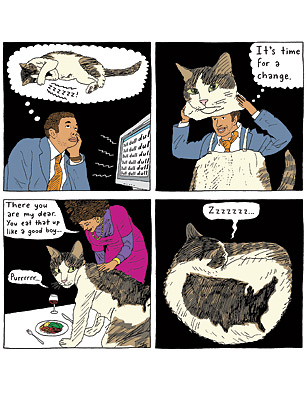
Middle-class kids are taught from an early age that they should work hard and finish school. Yet 3 out of 10 students dropped out of high school as recently as 2006, and less than a third of young people have finished college. Many economists attribute the sluggish wage growth in the U.S. to educational stagnation, which is one reason politicians of every stripe call for doubling or tripling the number of college graduates.
But what if the millions of so-called dropouts are onto something? As conventional high schools and colleges prepare the next generation for jobs that won't exist, we're on the cusp of a dropout revolution, one that will spark an era of experimentation in new ways to learn and new ways to live.
It's important to keep in mind that behavior that seems irrational from a middle-class perspective is perfectly rational in the face of straitened circumstances. People who feel obsolete in today's information economy will be joined by millions more in the emerging post-information economy, in which routine professional work and even some high-end services will be more cheaply performed overseas or by machines. This doesn't mean that work will vanish. It does mean, however, that it will take a new and unfamiliar form.
Look at the projections of fiscal doom emanating from the federal government, and consider the possibility that things could prove both worse and better. Worse because the jobless recovery we all expect could be severe enough to starve the New Deal social programs on which we base our life plans. Better because the millennial generation could prove to be more resilient and creative than its predecessors, abandoning old, familiar and broken institutions in favor of new, strange and flourishing ones.
Imagine a future in which millions of families live off the grid, powering their homes and vehicles with dirt-cheap portable fuel cells. As industrial agriculture sputters under the strain of the spiraling costs of water, gasoline and fertilizer, networks of farmers using sophisticated techniques that combine cutting-edge green technologies with ancient Mayan know-how build an alternative food-distribution system. Faced with the burden of financing the decades-long retirement of aging boomers, many of the young embrace a new underground economy, a largely untaxed archipelago of communes, co-ops, and kibbutzim that passively resist the power of the granny state while building their own little utopias.